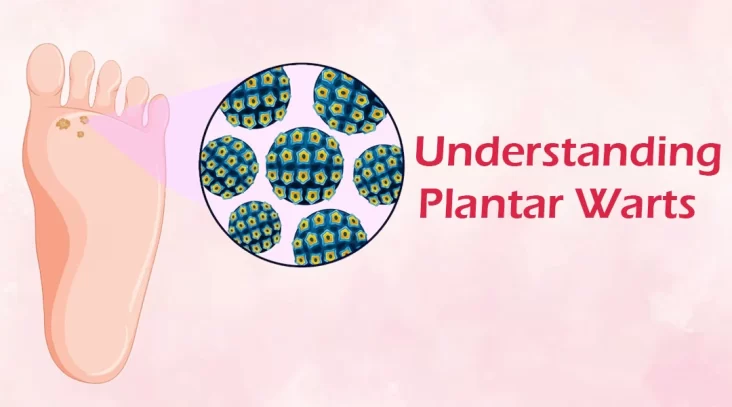What are plantar warts?
Verruca plantaris, often known as plantar warts, are hard growths that appear on the bottoms of your feet but are harmless. They emerge as a result of an infection brought on by the human papillomavirus (HPV) entering a cut or break in your skin. Understanding plantar warts is important as you can take necessary precautions if you are aware.
Who can get plantar warts?
Plantar warts can happen to everyone. But you can be more susceptible to developing plantar warts if:
- You’re a child or teenager.
- You have an autoimmune disease.
- You have a weakened immune system.
- You’re 65 years of age or older.
- You’re white.
How common are plantar warts?
The plantar wart is widespread. Ten per cent of the population has plantar warts. Plantar warts affect 10% to 20% of kids and teenagers.
How do plantar warts affect my body?
Plantar warts could hurt. To avoid pain, you might have to alter the way you stand, move, or run. The muscles, tissues, or joints in your feet and ankles may experience pain, discomfort, or stress over time as a result of these modifications to your natural posture or movement.
Your mental health may be impacted by plantar warts. Because of your self-consciousness, you could avoid walking barefoot or donning particular shoes or footwear, which could lead to stress, worry, or sadness.
Symptoms And Causes of Plantar Warts
What are the symptoms of plantar warts?
The following symptoms are associated with plantar warts:
- They resemble other warts in appearance but are located deeper in your skin, like an iceberg.
- The thick, uneven surface can resemble a head of cauliflower.
- (Dark pink, yellow, brown, purple, or grey) Discoloration.
- flecked with wart seeds, which are dark or brown. These blood clots have dried out.
- or compassion.
- Discomfort.
- Bleeding.
Plantar warts typically form:
- Between, on top of, or between your toes.
- On the forefoot (balls of your feet).
- On your heel.
Sometimes a big group of plantar warts known as a mosaic wart will develop.
What causes plantar warts?
Plantar warts are caused by HPV. A plantar wart develops when HPV invades a cut or crack in your skin and starts a skin infection. Plantar warts may not occur for two to six months following HPV exposure.
Are plantar warts contagious?
Plantar warts spread easily. They spread by skin-to-skin contact, sharing of objects like socks, shoes, and towels, or direct contact with HPV. If you have a plantar wart, you can spread the infection to other parts of your body by touching the wart.
Infected surfaces can also transmit HPV, particularly if they are warm or moist. At the gym, public pool, sauna, steam room or other public locations, it’s a good idea to wear shoes or flip-flops.
We hope that we made understanding plantar warts easy for you. If your plantar warts are uncomfortable, painful, or stressful, contact your healthcare physician. They can advise you on the most effective at-home or in-office treatment for your plantar warts.

